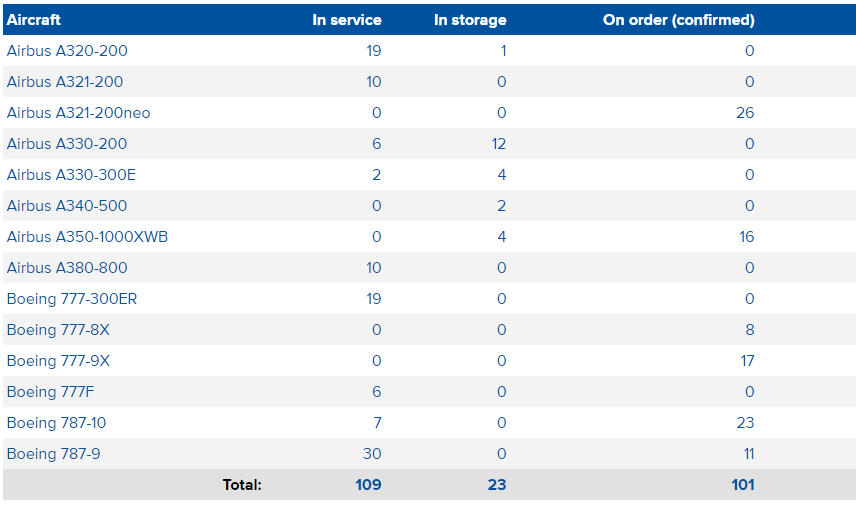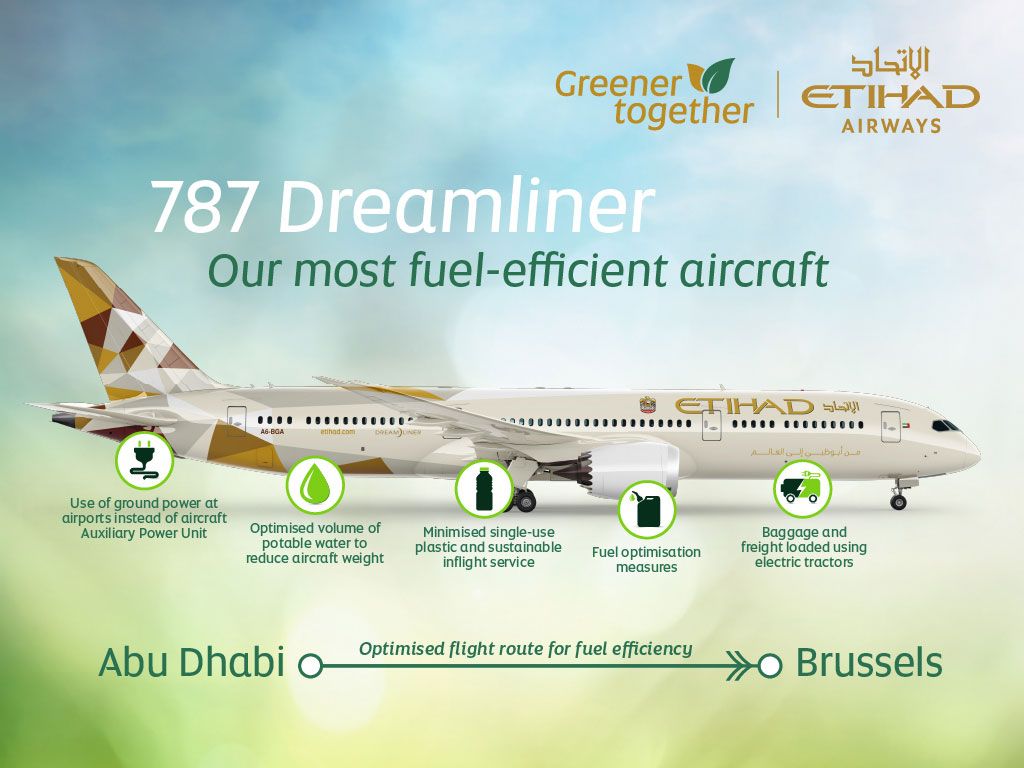The flight was timed to coincide with the start of Abu Dhabi Sustainability Week, an annual event held in the UAE capital to highlight sustainable initiatives across a broad range of areas. It was operated by one of the airline's Boeing 787 Dreamliners, a fleet which consumes at least 15 per cent less fuel than any aircraft type previously flown by the airline.
The aircraft followed an optimised flight route facilitated by the European air navigation service provider Eurocontrol to help reduce fuel consumption and carbon emissions. A range of other initiatives were also undertaken before, during and after the flight including fuel optimisation measures and other actions in collaboration with partners including Brussels airport and a range of cabin service suppliers to highlight incremental opportunities to reduce the airline's impact on the environment.
"Sustainable practice is a critical and continuing challenge for the air transport industry, which is striving to reduce carbon emissions and waste, while meeting soaring demand for air travel," says Tony Douglas, group chief executive officer, Etihad Aviation Group.
The Etihad chief says the carrier is committed to working continuously with a range of partners as part of a broader national focus on environmental sustainability. At the core of this commitment to sustainable flying, like many other carriers, is to introduce more fuel-efficient aircraft. In Etihad's case this involves increasing its fleet of 787s and it is preparing to induct three further new types, the wide-bodied Airbus 350-1000 and Boeing 777-9, and the narrow-bodied Airbus A321neo.
TABLE - The special flight was operated by Boeing 787-9, A6-BNC, one of 37 Dreamliners now flown by the UAE carrier, comprising 30-787-9 variants and seven larger 787-10s. This example was delivered to Etihad in Sep-2019 Source: CAPA - Centre for Aviation Fleet Database
Source: CAPA - Centre for Aviation Fleet Database
Elsewhere, it has recently partnered with First Abu Dhabi Bank and Abu Dhabi Global Markets to become the first airline to secure commercial funding conditional upon compliance with the Sustainable Development Goals of the United Nations and is exploring options for similar funding of other initiatives.
The airline has also announced the Etihad Greenliner Programme, through which its entire fleet of Boeing 787s will be used as flying testbeds for a range of sustainability initiatives by Etihad and its industry partners.
The first such partner is Boeing, which will join Etihad in a comprehensive research programme, beginning next week with delivery of a new 'signature' Boeing 787, specially-themed to highlight the sustainability partnership of the two companies.
Other stakeholders, from equipment suppliers to airspace regulators, will shortly join the companies in advancing and testing efficiency measures on or with the 'Greenliner', Robin Kamak, chief commercial officer, Etihad Aviation Group confirmed to The Blue Swan Daily on the sidelines of the CAPA World Aviation Outlook summit in Malta in Dec-2019.

Back to its special 'eco-flight' between Abu Dhabi and Brussels this week, other initiatives used to support the sustainability of its operation included using single-use plastics on board, including removal of plastic wrapping from blankets, headsets wrapped in paper (Economy) and velvet bags (Business), plastic-free amenity kits; lightweight metal cutlery, meals served in aluminium dishes, water served in recyclable boxes, hot beverage cups replaced with recyclable cups; and wheat-based plates used for on-demand meals in Business class.
On the ground, electric tractors were used to help ferry freight and luggage between the terminal and the aircraft in Abu Dhabi, an expedited taxi time from terminal to the runway, minimised holding time with engines running, while the use of ground power at both Abu Dhabi and Brussels airport terminals avoiding using the aircraft's own fuel-powered auxiliary power unit.
As part of its sustainability drive Etihad is also implementing or considering initiatives including the waterless cleaning of aircraft exteriors, improving presentation and removing grease and dirt to 'smooth' the fuselage and minimise aerodynamic 'drag'; and 'eco-wash' cleaning of aircraft engines to help improve fuel efficiency and minimise emissions.
It is also aiming to reduce single use plastics by 80% by 2022 and this week committed to a minimum target of zero net carbon emissions by 2050 and halving of its 2019 net emission levels by 2035.
We will increasingly see similar initiatives being introduced at airlines and airports across the globe as part of sustainability drives. Every small step marks a move in the right direction and highlights how seriously the industry is taking the environmental debate. But, it still has a long way to go!